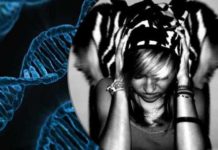
Bipolar Disorder and its Most Common Drug List

Mood swings correspond to the ups and downs of our lives. But, when these mood swings occur quite frequently, last for several weeks and disrupts the day to day activities, it may be suggestive of Bipolar Disorder.
Bipolar Disorder, formerly called as Manic-Depression, is a mental health illness characterized by episodes of mania and depression. Manic episodes are periods of high-energy when one feels elated. This is usually proceeded or preceded by depressive episodes, which are periods of feeling extremely low and hopeless. Sometimes, patients experience a less severe manic episode, known as hypomanic episode. Thus, experiencing emotions which are “poles-apart”, is referred to as bipolar disorder.
It is a life-long condition. However, appropriate medical intervention has shown to improve the quality of life of patients to a large extent.
Symptoms
The characteristic feature of bipolar disorder is episode of mania, hypomania and depression, presenting as following symptoms.
- An exaggerated sense of high self-esteem or grandiosity
- Sleep disturbances
- Changes in appetite and weight
- Fatigue
- Inability to concentrate
- Hampered decision-making ability (such as making foolish investments or going on a buying spree, etc)
- Change in speech, i.e. too rapid or slow speech
- Irritability
- Showing no interest in activities, which were once enjoyed
- Feeling sad, hopeless and worthless
- Suicidal thoughts
Treatment Methods and Drugs Used
The most advocated treatment of Bipolar disorder involves a combination of medications and psychotherapy.
Psychotherapy or talk therapy includes a variety of therapies, such as Cognitive Behavioral therapy (CBT) and Interpersonal and Social Rhythm Therapy (IPSRT), which aim at recognizing the negative feelings responsible for triggering manic-depressive episodes. It also aids in establishing a consistent daily rhythm, such as sleeping, waking and mealtimes, as a good routine helps in managing the mood changes.
Along with psychotherapy, medications such as mood stabilizers, antipsychotics, anti-depressants and anti-anxiety drugs are used to alleviate the mood disruptions in bipolar disorder. Since bipolar disorder tends to recur on withdrawal of medications, these must be consumed life-long to prevent future episodes.
Besides medications and psychotherapy, certain advanced therapies have also emerged as effective treatment options in bipolar disorder. These include Electroconvulsive Therapy (ECT) and Transcranial Magnetic Stimulation (TMS).
Various medications that can effectively manage symptoms of bipolar disorder are described below.
1. Lithium Carbonate
Lithium carbonate is an anti-manic and a mood-stabilizing drug. It reduces the frequency of manic episodes and stabilizes the mood in bipolar disorder. The exact mechanism of action of lithium carbonate is not known. However, several theories have been proposed in this context.
One theory points to the fact that lithium carbonate acts by replacing the sodium ions in the body, thus affecting the ionic reflexes of the brain. Some researchers suggest that it inhibits the release of brain chemicals (medically termed as neurotransmitters), namely Noradrenaline and Dopamine, thus correcting the chemical imbalance in the brain. Another theory states that lithium carbonate blocks the supply of a chemical, called inositol to the brain, thus specifically affecting the hyperactive neurons.
Therefore, lithium carbonate alters the brain chemicals and affects the signal transduction of the brain, thus normalizing the brain functioning.
Available as: Oral preparations
US-FDA Status: Approved for Bipolar Disorder
Availability: Prescription only
Generic name: lithium carbonate
Brand name: Lithium Carbonate tablet
Side-effects: Thinning or drying of hair, skin itching, lack of coordination, tremors of hand, vomiting, nausea
Indicated in Pregnancy: Only when there are no other alternatives, as it can cause cardiac anomalies in fetus, such as Ebstein’s anomaly
Alcohol Content: Absent
2. Typical Anti-psychotics
These are also known as first-generation anti-psychotics and constitute the older anti-psychotic drugs. This group of drugs blocks a specific Dopamine receptor, namely D2 receptor in the brain. Dopamine is a brain neurotransmitter that regulates various bodily functions, such as sleep, learning, attention and motivation. Bipolar disorder has a strong association with dopamine imbalance. By blocking D2 dopamine receptors, typical anti-psychotic drugs normalize the dopamine imbalance and are used to treat the manic episode of bipolar disorder.
Available as: Oral preparations and Injectable preparations
I. Phenothiazines
A. Chlorpromazine
US-FDA Status: Unapproved for Bipolar Disorder
Generic name: chlorpromazine hydrochloride (oral)
Brand name: Thorazine
Side-effects: Dizziness, dry mouth, skin rash, weight gain, extrapyramidal side effects, such as dystonia (abnormal movements and postures), tardive dyskinesia (involuntary movements, such as lip smacking, eye blinking, etc.)
Indicated in Pregnancy: Only when there is an absolute need, as there has been evidence of fetal death, prolonged labor and other fetal abnormalities.
Alcohol Content: Absent
B. Trifluoperazine
Trifluoperazine Oral
US-FDA Status: Approved for Bipolar Disorder
Availability: Prescription only
Generic name: trifluoperazine hydrochloride
Brand name: Trifluoperazine Hydrochloride
Side-effects: Dry mouth, skin rash, dizziness, blurred vision, anorexia, muscle weakness, extrapyramidal side-effects (already mentioned above)
Indicated in Pregnancy: Only when there is an absolute need, as there has been evidence of fetal death, prolonged labor and other fetal abnormalities.
Alcohol Content: Absent
Trifluoperazine Injection
US-FDA Status: Unapproved for Bipolar Disorder
Generic name: trifluoperazine hydrochloride
Brand name: Stelazine
Side-effects: Same as seen with Oral Trifluoperazine
Indicated in Pregnancy: Only when there is an absolute need
Alcohol Content: Absent
C. Fluphenazine
US-FDA Status: Approved for Bipolar Disorder
Availability: Prescription only
Generic name: fluphenazine hydrochloride (oral), fluphenazine decanoate (injection)
Brand name: Fluphenazine Hydrochloride (oral), Fluphenazine Decanoate (injection)
Side-effects: Depression, cataract, drowsiness, blurred vision, extrapyramidal side-effects (already mentioned above)
Indicated in Pregnancy: It can hamper the cerebral and skeletal development of fetus. Thus, it should be administered only when advantages outweigh fetal risk.
Alcohol Content: Absent
II. Butyrophenones
A. Haloperidol Oral and Injection
US-FDA Status: Approved for Bipolar Disorder
Availability: Prescription only
Generic name: haloperidol (oral), haloperidol decanoate (injection)
Brand name: Haloperidol (oral), haldol (injection)
Side-effects: Constipation, weight gain, blurred vision, dry mouth, extrapyramidal side-effects (already mentioned above)
Indicated in Pregnancy: It can hamper the cerebral and skeletal development of fetus. Thus, it should be administered only when advantages outweigh fetal risk.
Alcohol Content: Absent
3. Atypical Anti-psychotics
These are the second-generation, newer anti-psychotic drugs. They have a weak D2 receptor blocking action. However, they block serotonin receptors (medically termed as 5-hydroxytryptamine) and alpha-adrenergic receptors of the brain. These receptors mediate the neurotransmission, i.e. transmission of brain signals. Hence, atypical anti-psychotics are used to manage mood changes in bipolar disorder.
Since typical anti-psychotics have some major side effects, atypical anti-psychotics are preferred.
Available as: Oral preparations and Injectable preparations
I. Olanzapine
US-FDA Status: Approved for Bipolar Disorder
Availability: Prescription only
Generic name: olanzapine (oral), olanzapine pamoate (injection)
Brand name: Olanzapine (oral), Zyprexa Relprevv (injection)
Side-effects: Drowsiness, extrapyramidal symptoms, weight gain, dry mouth, weakness
Indicated in Pregnancy: Not indicated in third trimester as it can cause hypertonia, hypotonia, agitation, tremors, distress and feeding disorders in fetus.
Alcohol Content: Absent
II. Risperidone
US-FDA Status: Approved for Bipolar Disorder
Availability: Prescription only
Generic name: risperidone
Brand name: Risperidone (oral), Risperdal Consta (injection)
Side-effects: Aggression, anxiety, agitation, increase amount of urine, skin rash or itching, memory problems
Indicated in Pregnancy: Only when absolutely indicated, as cases of stillbirths have been reported
Alcohol Content: Absent
III. Aripiprazole
US-FDA Status: Approved for Bipolar Disorder
Availability: Prescription only
Generic name: aripiprazole
Brand name: Abilify (oral), abilify maintena kit (injection)
Side-effects: Loss of balance control, speech difficulty, drooling, limbs stiffness, muscle trembling
Indicated in Pregnancy: Only when absolutely indicated, as it may lead to developmental defects in fetus
Alcohol Content: Absent
IV. Quetiapine
US-FDA Status: Approved for Bipolar Disorder
Availability: Prescription only
Generic name: quetiapine fumarate (oral)
Brand name: Seroquel XR
Side-effects: Loss of balance control, speech difficulty, drooling, limbs stiffness, muscle trembling
Indicated in Pregnancy: Only when absolutely indicated, as it may lead to developmental defects in fetus
Alcohol Content: Absent
V. Ziprasidone
US-FDA Status: Approved for Bipolar Disorder
Availability: Prescription only
Generic name: ziprasidone hydrochloride (oral), ziprasidone mesylate (injection)
Brand name: Geodon (oral and injection)
Side-effects: Fever, drooling, cough, nervousness, loss of balance control
Indicated in Pregnancy: Only when absolutely indicated, as it may lead to developmental defects in fetus
Alcohol Content: Absent
VI. Lurasidone
US-FDA Status: Approved for Bipolar Disorder
Availability: Prescription only
Generic name: lurasidone hydrochloride (oral)
Brand name: Latuda
Side-effects: Drooling, difficulty with swallowing, muscle discomfort, inability to sit still
Indicated in Pregnancy: Not indiacted in third trimester, as it can cause tremors, agitation, hypotonia, somnolence and respiratory disorder in fetus
Alcohol Content: Absent
VII. Asenapine
US-FDA Status: Approved for Bipolar Disorder
Availability: Prescription only
Generic name: asenapine maleate (oral)
Brand name: Saphris
Side-effects: Trouble with breathing, swallowing or speaking, lip puckering or smacking, reduced or abnormal touch sensation, inability to move eyes
Indicated in Pregnancy: Usually contraindicated, especially in third trimester
Alcohol Content: Absent
4. Selective Serotonin Re-Uptake Inhibitor (SSRI) Anti-depressants
This class of drugs is a new generation anti-depressant. It is useful in relieving the depression in bipolar disorder. It acts by inhibiting the Serotonin Transporter (SERT), located in the nerve cell membrane. SERT is necessary for re-uptake of a neurotransmitter, namely serotonin. By inhibiting the re-uptake of this chemical, SSRIs produce an anti-depressant effect. However, it takes few weeks to act and hence, is not used in cases where rapid results are desirable.
A notable fact here is that SSRIs are a potent anti-depressant but can worsen the manic episodes. Hence, these are usually combined with a mood stabilizer or anti-psychotic.
Available as: Oral preparations
I. Fluoxetine
US-FDA Status: Approved for Bipolar Disorder
Availability: Prescription only
Generic name: fluoxetine hydrochloride (oral)
Brand name: Sarafem
Side-effects: Restlessness, hives, itching, skin rash, inability to sit still
Indicated in Pregnancy: Only when absolutely indicated
Alcohol Content: Absent
II. Paroxetine
US-FDA Status: Approved for Bipolar Disorder
Availability: Prescription only
Generic name: paroxetin mesylate (oral)
Brand name: Brisdelle
Side-effects: Chills, chest pain, chest congestion, agitation, cold sweats
Indicated in Pregnancy: Only when absolutely indicated
Alcohol Content: Absent
III. Sertraline
US-FDA Status: Approved for Bipolar Disorder
Availability: Prescription only
Generic name: sertraline hydrochloride (oral)
Brand name: Zoloft
Side-effects: Failure to ejaculate (in men), reduced sex drive
Indicated in Pregnancy: Only when absolutely indicated
Alcohol Content: Absent
IV. Citalopram
US-FDA Status: Approved for Bipolar Disorder
Availability: Prescription only
Generic name: citalopram hydrobromide (oral)
Brand name: Celexa
Side-effects: Fever, blurred vision, agitation, confusion, loss of memory
Indicated in Pregnancy: Only when absolutely indicated and is contraindicated in third trimester
Alcohol Content: Absent
V. Escitalopram
US-FDA Status: Approved for Bipolar Disorder
Availability: Prescription only
Generic name: escitalopram oxalate (oral)
Brand name: Lexapro
Side-effects: Dizziness, confusion, convulsions, coma, headache, muscle cramps
Indicated in Pregnancy: Only when absolutely indicated and is contraindicated in third trimester
Alcohol Content: Absent
5. Anti-epileptic or Anti-convulsant Drugs
This group of drugs is primarily indicated in patients with epilepsy (commonly referred to as fits). Various anti-epileptic drugs are used in the treatment of bipolar disorder, which are described below.
I. Aliphatic Carboxylic Acid Anti-convulsants
Action potential are electrical impulses generated in the brain due to the flow of ions across the nerve membrane. This flow of ions is mediated through voltage-gated channels in the nerve membrane.
Aliphatic carboxylic acid anticonvulsants inactivate the volatge-gated sodium ion channels and reduce the influx of calcium ion across the nerve membrane. They also stimulate the release of a neurotransmitter, called gamma- Aminobutyric acid (GABA). All these actions lead to reduced excitability of the nerve cells. Thus, aliphatic carboxylic acids normalize the nerve transmission and are used as anti-manic and mood stabilizing drugs in bipolar disorder.
Available as: Oral preparations and Injectable preparations
A. Valproic Acid (Sodium Valproate)
US-FDA Status: Approved for Bipolar Disorder
Availability: Prescription only
Generic name: valproic acid (oral), valproate sodium (injection)
Brand name: Depakene (oral), Depacon (injection)
Side-effects: Black tarry stools, confusion, bleeding gums, blood in urine or stools, bloating, cough or hoarseness
Indicated in Pregnancy: Usually contraindicated
Alcohol Content: Absent
B. Divalproex (Semisodium Valproate)
US-FDA Status: Approved for Bipolar Disorder
Availability: Prescription only
Generic name: divalproex (oral)
Brand name: Depakote
Side-effects: Black tarry stools, confusion, bleeding gums, blood in urine or stools, bloating, cough or hoarseness
Indicated in Pregnancy: Usually contraindicated
Alcohol Content: Absent
II. Iminostilbene
This group of anti-convulsant drugs inactivates the sodium channel of the nerve cell membrane and thus affects the nerve transmission. It is used as an alternative to lithium carbonate to produce anti-manic and mood stabilizing effect.
Available as: Oral preparations and Injectable preparations
A. Carbamazepine
US-FDA Status: Approved for Bipolar Disorder
Availability: Prescription only
Generic name: carbamazepine
Brand name: Tegretol (oral), Carnevix (injection)
Side-effects: Continuous back and forth eye movement, double vision, blurred vision
Indicated in Pregnancy: Usually contraindicated
Alcohol Content: Absent
III. Phenyltriazine
This class of anti-convulsant inactivates the sodium ion channels and stabilizes the nerve cell membrane, thus inhibiting the release of neurotransmitters, namely Glutamate and Aspartate. By doing so, phenyltriazines restore the balance of nerve activity. Hence, it is used as an anti-manic and mood stabilizing drug in bipolar disorder.
Available as: Oral preparations and Injectable preparations
A. Lamotrigene
US-FDA Status: Approved for Bipolar Disorder
Availability: Prescription only
Generic name: lamotrigine (oral)
Brand name: Lamictal
Side-effects: Unsteadiness, blurred vision, skin rash, double vision, poor coordination
Indicated in Pregnancy: Usually contraindicated
Alcohol Content: Absent
IV. Benzodiazepines
This group of anti-convulsant drug enhances the effect of gamma-Aminobutyric acid (GABA) receptors. GABA is a brain chemical that reduces the excitability of nerve cells. By stimulating the GABA receptors, benzodiazepines produce an anti-anxiety effect. Hence, benzodiazepines are used on a short-term basis in bipolar disorder to relieve the anxiety of the patient and improve sleep cycle.
Available as: Oral preparations and Injectable preparations
A. Diazepam
Diazepam Oral
US-FDA Status: Approved for Bipolar Disorder
Availability: Prescription only
Generic name: diazepam (oral)
Brand name: Valium
Side-effects: Problem with muscle control or coordination, trembling, unsteady walk
Indicated in Pregnancy: Usually contraindicated
Alcohol Content: Absent
Diazepam Injection
US-FDA Status: Unapproved for Bipolar Disorder
Generic name: diazepam (injection)
Brand name: Valium
Side-effects: Same as seen with oral diazepam
Indicated in Pregnancy: Usually contraindicated
Alcohol Content: Absent
B. Alprazolam
US-FDA Status: Approved for Bipolar Disorder
Availability: Prescription only
Generic name: alprazolam (oral)
Brand name: Xanax
Side-effects: Speech alteration, unsteadiness, drowsiness, forgetfulness, irritability
Indicated in Pregnancy: Can cause congenital fetal malformation when consumed in first trimester
Alcohol Content: Absent
C. Chlordiazepoxide
Chlordiazepoxide Oral
US-FDA Status: Approved for Bipolar Disorder
Availability: Prescription only
Generic name: chlordiazepoxide hydrochloride (oral)
Brand name: Librium
Side-effects: Mood changes, unsteadiness, fainting, difficulty in muscle coordination
Indicated in Pregnancy: Can cause congenital fetal malformation when consumed in first trimester
Alcohol Content: Absent
Chlordiazepoxide Injection
US-FDA Status: Unapproved for Bipolar Disorder
Generic name: chlordiazepoxide hydrochloride (injection)
Brand name: Librium
Side-effects: Same as seen with oral chlordiazepoxide
Indicated in Pregnancy: Can cause congenital fetal malformation when consumed in first trimester
Alcohol Content: Absent
D. Lorazepam
US-FDA Status: Approved for Bipolar Disorder
Availability: Prescription only
Generic name: lorazepam (oral and injection)
Brand name: Ativan (oral), lorazepam (injection)
Side-effects: Drowsiness, agitation, abdominal pain
Indicated in Pregnancy: Usually contraindicated, due to its potential to cause neonatal flaccidity, feeding and respiratory difficulties.
Alcohol Content: Absent
E. Oxazepam
US-FDA Status: Unapproved for Bipolar Disorder
Generic name: oxazepam (oral)
Brand name: Oxazepam
Side-effects: Black tarry stools, chest pains, abdominal pain, chills, dark urine, fainting
Indicated in Pregnancy: Usually contraindicated
Alcohol Content: Absent
OTC
Bipolar disorder is a serious mental health ailment. The medications used in its treatment are centrally acting drugs and can have major side-effects. Hence, there are no over the counter medications available for bipolar disorder.
Consulting a psychiatrist is of paramount importance to effectively manage the disease.








